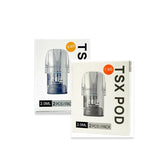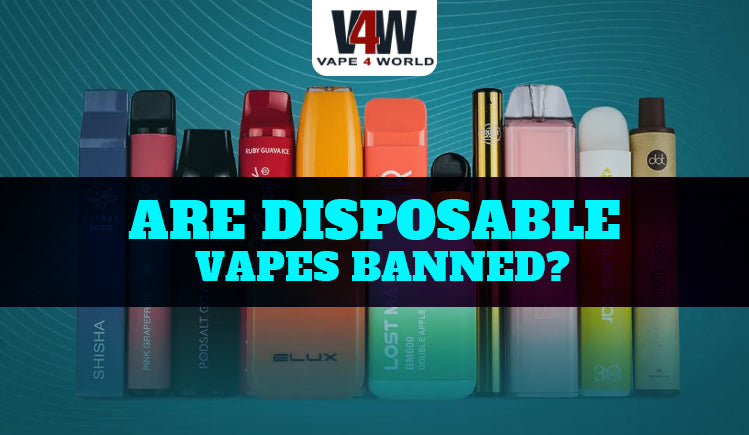Introduction: A Landmark Public Health Intervention
The decision to outlaw disposable vapes marks one of the UK’s most significant steps in recent public health and environmental policy. For years, experts have warned about the unchecked rise in teen vaping, combined with the environmental cost of these throwaway devices. With this regulation now confirmed and entering into force, businesses, consumers, and policymakers must adjust to a new nicotine landscape. The focus of this analysis is not just on what is banned, but why and what this signals about the future of smoking alternatives and regulatory oversight in Britain.
What Exactly Does the Ban Cover?
At the centre of the ruling is a full prohibition on all single-use, non-rechargeable, and non-refillable vape products. These are typically pre-filled, come ready to use, and are discarded after use, contributing heavily to waste and underage access. Whether containing nicotine or not, these products are now off-limits for sale or supply.
What's included:
-
Devices with non-rechargeable lithium batteries
-
Pre-filled vapes with no option for refills or coil replacements
-
Most major disposable brands already familiar on the market
What's excluded:
-
Pod-based and refillable vape kits
-
Rechargeable devices with replaceable coils
-
Smoking cessation products like patches or nicotine gum
The legislation allows continued possession of existing disposables but prohibits commercial transactions. This clear-cut definition eliminates grey areas and ensures enforcement is practical and uniform.
Why Were Disposable Vapes Targeted?
The ban is not a spontaneous move; it’s a response to multiple compounding crises. Firstly, the dramatic increase in vaping among minors has sparked alarm. Reports show that millions of children have experimented with vapes, attracted by flavours and playful branding. Despite age limits, access has remained easy due to weak retail enforcement and online loopholes.
Secondly, environmental repercussions have reached unsustainable levels. Disposable vapes are made from plastic, metal, and lithium none of which are biodegradable. With millions discarded every week, landfills and oceans face toxic contamination. Fires caused by improperly disposed lithium batteries in waste systems further highlight the urgency of intervention.
Lastly, the devices are often viewed as benign, but health experts continue to raise red flags over nicotine addiction and the unknown long-term effects of inhaling vape aerosols especially among children and teens. The government, therefore, was compelled to act on both ethical and ecological grounds.
Enforcement Strategy and Penalties for Violations
The ban introduces one of the most stringent enforcement plans in recent regulatory history. Trading Standards officers will lead implementation, carrying out inspections across retail locations and online platforms. Retailers found breaching the rules face heavy penalties including fixed fines, seizure of products, and potential imprisonment for repeated non-compliance.
Initial fines are set to discourage casual violations, but secondary offences could lead to legal proceedings and custodial sentences. This strict enforcement model mirrors the seriousness with which the government is treating this issue. Moreover, local councils have received funding boosts to support inspection operations and public awareness efforts, making the transition not just legislative, but practical and enforceable.
Health and Environmental Reasons Behind the Ban
Disposable vapes represent a dual threat to personal health and planetary safety. On the health front, while vaping is generally regarded as less harmful than traditional smoking, it is not risk-free. The devices often deliver high levels of nicotine, which is highly addictive, particularly for adolescents whose brains are still developing. Over time, excessive use may impact mood regulation, impulse control, and even memory functions.
Environmentally, the figures are even more staggering. With millions of disposables entering the waste stream each week, existing recycling systems have become overwhelmed. These devices leak heavy metals like cobalt and copper into the soil and water, while their lithium-ion batteries pose a constant fire hazard in waste facilities and transport vehicles.
There is currently no large-scale infrastructure in the UK to safely process these devices. Until that exists, the environmental damage alone justifies a full-scale removal from market shelves.
How Retailers and the Vape Industry Are Being Affected
Retailers, particularly small shops that rely on fast-selling vape products, are among the most affected by the ban. The disposable segment grew rapidly due to high demand, especially among young adults and casual users. Many stores report that vape products made up a significant portion of their revenue, meaning this ban demands serious commercial recalibration.
Manufacturers, too, will need to innovate or risk extinction. Brands that once relied solely on disposable sales must now pivot toward sustainable, compliant products — such as refillable kits or medically approved cessation devices. While the initial economic impact may be sharp, long-term industry health could benefit from clearer guidelines, product accountability, and an end to the chaotic influx of cheap, unregulated imports.
Black Market Concerns and Illicit Vape Sales
One of the unavoidable side effects of such bans is the risk of creating underground markets. Over the past few years, authorities have already seized millions of illegal vapes containing non-compliant ingredients, mislabelled nicotine strengths, or harmful chemical additives. With the official market shrinking, there’s growing concern that black market operators may expand operations.
To combat this, the government is ramping up border checks, investing in advanced customs screening, and launching consumer awareness campaigns. Retailers are being trained to identify illegal stock, and consumers are being encouraged to report suspicious sellers. The success of this strategy depends heavily on coordinated enforcement and a well-informed public that understands the dangers of unregulated products.
Future Legal and Tax Measures Around Vaping
While the disposable ban is the headline measure, it's part of a broader reformation of nicotine regulation in the UK. New fiscal and legal strategies are already underway. A targeted vaping tax is scheduled to take effect soon, aiming to discourage excessive use while generating revenue for public health initiatives.
Advertising rules are also tightening. Upcoming legislation will eliminate vape ads from digital media, public transport, and print platforms. Flavour names, packaging colours, and in-store displays will be strictly controlled, removing the playful, youth-focused marketing that critics blame for the surge in teen vaping.
These steps suggest the government isn’t only reacting to current problems it’s proactively shaping a nicotine policy that prioritises safety, sustainability, and public responsibility.
What Will Happen to the Remaining Stock?
Retailers are being instructed to responsibly dispose of remaining disposable vape inventory. Several initiatives are being developed to assist in the safe disposal and recycling of these products. While owning such vapes won’t be illegal, selling them will be.
Some larger chains have already begun returning unsold units to manufacturers. However, smaller outlets may face financial losses unless proper support mechanisms are introduced. Without national recycling infrastructure, however, the post-ban clean up remains a significant challenge. This transitional period will be critical in determining how smoothly the policy is implemented.
Public Opinion and Behavioural Shifts
Early signs indicate mixed reactions from the public. Health advocates and environmental organisations overwhelmingly support the decision, while younger users and casual vapers voice concerns over accessibility and convenience. Panic-buying in the weeks before implementation is common, reflecting uncertainty and lack of awareness.
Over time, it is expected that consumer behaviour will shift toward longer-term solutions. Refillable vape kits and nicotine alternatives may gain popularity, particularly among those genuinely trying to quit smoking. Education campaigns will play a crucial role in guiding this transition showing people how to adapt and how to make safer, more sustainable choices in a post-disposable era.
Is This Ban Likely to Be Reversed?
Whether disposable vapes will be allowed back on the market is a question many are asking. Currently, there is no indication of a reversal. The government has left the door slightly open by suggesting that if new devices can meet very high environmental and safety standards, discussions may follow. However, this will likely take years.
Ongoing research projects including one tracking the effects of vaping on over 100,000 children may influence future decisions. Until there is conclusive, long-term evidence showing reduced harm, combined with the creation of effective recycling systems, the ban is expected to remain firmly in place. It reflects a long-term health strategy rather than a temporary fix.
Conclusion: A Turning Point in UK Health Policy
This ban is not just about stopping the sale of a product. It symbolises a shift in priorities from market growth to public protection. By taking action against disposables, the UK has aligned its policy with broader goals of sustainability, youth safety, and regulatory clarity.
So, are disposable vapes banned in the UK? Yes, and the implications stretch far beyond retailers or casual consumers. This is a reshaping of how society engages with nicotine, and a powerful signal that convenience will no longer outweigh health, safety, or environmental responsibility.
The road ahead will have its challenges from enforcing the law to preventing black-market activity but the direction is clear. Disposable vapes, once seen as a modern convenience, are now recognised as a widespread risk. This bold move is not the end of the conversation, but the beginning of a more informed, controlled, and ethical era in nicotine regulation.
Sources
-
Government Consultation Outcome - gov.co.uk
-
Youth Vaping: Call for Evidence - gov.uk
-
Number of disposable single-use vapes thrown away quadrupled to 5 million per week - materialfocus.org.uk
-
Use of Vapes Among Young People GB 2023 - ash.org.uk
-
Are Disposable Vapes Bad for the Environment? - greenpeace.org.uk
-
Disposable Vapes to Be Banned for Children's Health - bbc.co.uk
-
Disposable Vape Ban to Be Introduced Within a Year - betterretailing.com
-
Councils Call for Ban of Disposable Vapes - ash.org.uk
-
General Information - Vape4World.co.uk (Not medical advice)
Vape4World provides general information about vaping and vape-related products. This content is not intended as medical advice and should not be relied upon as such unless specifically referenced. We make no guarantees regarding the health effects, accuracy, or reliability of the information shared across our website, blog, or social media platforms.
FAQs:
When will disposable vapes be banned in the UK?
The UK will ban the sale and supply of disposable vapes starting 1st June 2025.
This applies to both online and in store purchases across the country.
Why are disposable vapes being banned?
The ban targets rising youth vaping and severe environmental pollution.
Millions of non-recyclable vapes are discarded weekly, causing major concern.
Can I still use a disposable vape after the ban?
Yes, you can still use disposable vapes you already own.
However, buying or selling them after the ban will be illegal.
What can I use instead of disposable vapes?
Refillable and rechargeable kits are legal and safer alternatives. They’re more cost-effective and eco-friendly in the long run.













